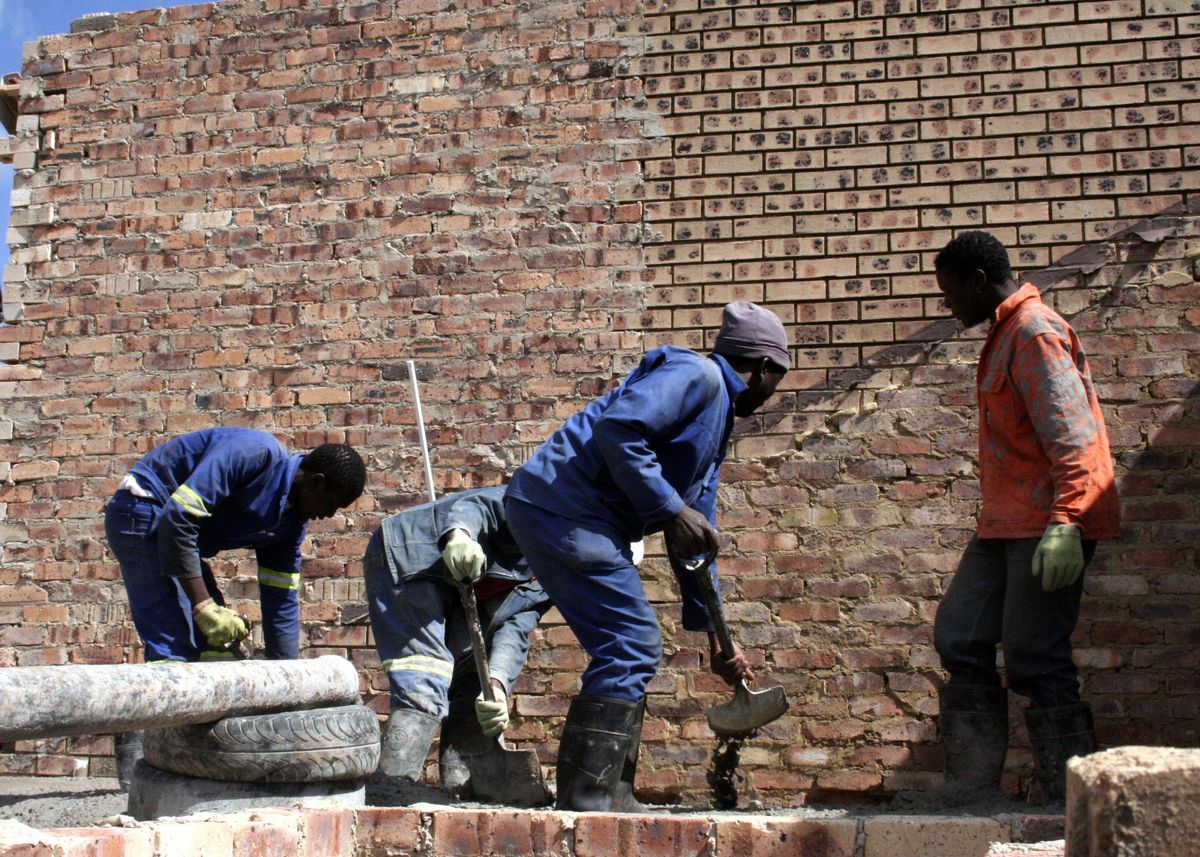Renovation projects often involve significant financial transactions and trust between contractors and clients. However, when clients delay payments, it can create a strain on the relationship and put the contractor in a difficult financial position. This article aims to provide practical advice on how to handle situations where clients delay payment for renovation work. It covers understanding the reasons behind payment delays, legal and financial recourse options, best practices for preventing payment issues, managing cash flow during these delays, and maintaining professional relationships despite financial disputes.
Key Takeaways
- Identify common causes for payment delays and address them through clear communication and contract assessment.
- Understand legal options such as mediation, arbitration, and lien rights, and consider small claims court for unpaid work.
- Implement clear payment terms, utilize progress payments, and conduct credit checks to prevent payment issues.
- Manage cash flow by adjusting project budgets, seeking alternative financing, and cutting non-essential costs during delays.
- Maintain professional relationships by balancing firmness with diplomacy, documenting communications, and exploring negotiation strategies.
Understanding the Reasons Behind Payment Delays
Identifying Common Causes
Payment delays can stem from a myriad of sources. Client financial instability is a frequent culprit, often hidden until project completion looms. Miscommunication about the payment schedule can also lead to unexpected hiccups.
Contract disputes or misunderstandings about the scope of work contribute their share to delayed payments. It’s crucial to pinpoint the root cause to address the issue effectively.
- Client financial issues
- Miscommunication
- Contract misunderstandings
- Scope of work disputes
Proactive communication is key. Establish clarity from the outset to mitigate payment delays.
Understanding these common causes is the first step in addressing payment delays in construction consulting, general contracting, and specialized construction work.
Communicating with the Client
Open dialogue is crucial when facing payment delays. Initiate the conversation as soon as an issue arises to understand the client’s situation. Use empathy to maintain a professional tone while expressing your concerns.
- Address the delay promptly
- Inquire about the cause
- Offer solutions, such as a payment plan
Payment issues can be sensitive. Approach the client with respect, aiming to preserve the relationship while seeking resolution.
Remember, clear communication can often resolve payment delays without escalating to legal action. Document each interaction to protect your business and maintain a record of the efforts made to resolve the issue.
Assessing Contractual Agreements
Contracts are the backbone of any renovation project. They set expectations and outline the obligations of both parties. Review your contract carefully for payment terms and conditions. Look for clauses related to late payments, such as penalties or interest charges. Ensure that the contract includes a clear process for addressing non-payment issues.
Documentation is crucial. Keep all contract versions, change orders, and communication regarding payments well-organized. This will be invaluable if legal action becomes necessary.
- Identify payment milestones
- Record any deviations from the contract
- Note the agreed upon late payment penalties
When payment delays occur, refer back to your contract as the first step in resolving the issue.
Legal and Financial Recourse for Unpaid Work
Exploring Mediation and Arbitration
When faced with non-payment, mediation offers a less confrontational path. A neutral third party helps both sides reach a compromise. It’s cost-effective and less time-consuming than court battles.
Arbitration is more formal but still outside traditional courts. An arbitrator reviews the evidence and imposes a decision. Both methods require clear documentation and a willingness to negotiate.
-
Mediation Steps:
- Select a mediator
- Exchange information
- Joint session
- Explore settlement options
- Reach an agreement
-
Arbitration Process:
- Agree to arbitrate
- Present evidence and arguments
- Await the arbitrator’s decision
Both mediation and arbitration can preserve business relationships while resolving disputes.
Knowing Your Lien Rights
Mechanic’s liens are a powerful tool for ensuring payment. By filing a lien, contractors can claim a security interest in the property they’ve improved. It’s crucial to understand the specifics of lien laws, which vary by state.
- Determine eligibility and deadlines for filing
- Prepare necessary documentation
- Record the lien with the appropriate county office
Filing a lien can be a complex process, but it’s a critical step in protecting your financial interests.
Remember, a lien can prompt quicker payment by encumbering the property. However, it should be used judiciously, as it can also escalate conflicts.
Considering Small Claims Court
When other methods fail, small claims court is a viable option for recovering unpaid renovation work fees. Small claims court is designed for simplicity, allowing you to represent yourself without the need for an attorney. The process is faster and less formal than higher courts.
Eligibility varies by jurisdiction, but typically involves claims below a certain dollar amount. Before filing, ensure your case falls within these monetary limits. Here’s a quick checklist:
- Verify the claim amount is within the small claims limit
- Gather all necessary documentation and evidence
- Understand the filing and hearing procedures
Filing a claim requires precision and attention to detail. Missing a deadline or failing to present key evidence can jeopardize your case.
Remember, timeliness is crucial, especially when it comes to mechanic’s liens, which may be a prerequisite for pursuing legal action in small claims court. Stay informed and act promptly to protect your rights.
Best Practices for Preventing Payment Issues
Implementing Clear Payment Terms
Clear payment terms are the foundation of smooth financial transactions. Set expectations early by detailing when and how payments should be made. Use milestones to structure payment schedules, ensuring clients understand their financial commitments at each project phase.
- Define payment amounts and due dates
- Specify acceptable payment methods
- Include late payment penalties
Establishing clear terms helps prevent misunderstandings and sets a professional tone for the business relationship. It’s not just about getting paid on time; it’s about fostering trust and transparency with your clients.
Utilizing Progress Payments
To safeguard your cash flow and minimize risks, implement progress payments. This method breaks down the total payment into smaller, manageable installments, tied to the completion of specific project milestones.
Progress payments ensure a steady income stream and provide a structured approach to financing the work as it progresses. Here’s how to effectively use them:
- Establish clear milestones in the contract.
- Invoice promptly after reaching each milestone.
- Communicate expectations with the client beforehand.
By aligning payments with project phases, you mitigate the impact of potential delays and maintain financial stability.
Remember, progress payments are not just about receiving funds; they’re about fostering trust and transparency with your clients. Negotiate with balance, manage payment delays through communication and protocols. Legal action for non-payment should be a last resort, with the focus on recovery and efficient payment schedules.
Conducting Credit Checks
Before you begin any renovation project, conducting a credit check on your client can provide valuable insight into their financial reliability. This preemptive step can help you assess the risk of payment delays or defaults.
Credit checks serve as a critical tool in your risk management strategy. They allow you to make informed decisions about the terms of payment and whether to require a deposit upfront.
- Review credit history
- Evaluate credit scores
- Analyze payment patterns
By understanding a client’s creditworthiness, you can tailor your payment terms to match the level of risk.
Remember, a client with a strong credit history is more likely to fulfill their financial obligations on time. This practice not only protects your business but also promotes a foundation of trust between you and your clients.
Managing Cash Flow During Payment Delays
Adjusting Project Budgets
When payment delays occur, it’s crucial to re-evaluate your project’s budget. Immediate adjustments can prevent financial strain and keep the renovation on track. Start by reviewing all expenses and identifying areas where costs can be reduced without compromising quality.
Prioritize essential expenditures and delay or eliminate non-critical outlays. Here’s a simple framework to guide your budget adjustments:
- Essential Costs: Materials, labor, permits
- Deferred Costs: Decorative elements, non-urgent upgrades
- Eliminated Costs: Luxury items, optional features
By proactively managing your budget, you can maintain momentum and mitigate the impact of delayed payments.
Remember, maintaining a lean budget during these times is not just about survival; it’s about positioning your business for continued success once payments resume. Regularly update your financial plan to reflect the current situation and prepare for future cash flow challenges.
Seeking Alternative Financing
When traditional payment avenues falter, diversify your financial toolkit. Explore factoring—selling unpaid invoices for immediate cash. Consider lines of credit for a reliable safety net. Peer-to-peer lending and crowdfunding can also provide unconventional but effective capital boosts.
- Factoring: Immediate cash for a percentage of the invoice value.
- Lines of Credit: Access funds up to a pre-approved limit.
- Peer-to-Peer Lending: Borrow directly from individuals.
- Crowdfunding: Raise small amounts from many backers.
Adjusting your approach to financing can keep your renovation projects on track, even when client payments lag.
Remember, negotiating with suppliers can extend your runway. Embrace long-term financial planning to weather payment delays. Always maintain clear communication with delinquent clients to resolve issues proactively.
Cutting Non-Essential Costs
When cash flow tightens due to delayed payments, trimming the fat becomes a necessity. Review your expenses and identify areas where you can reduce spending without compromising the quality of your renovation work.
Prioritize expenses that are critical to project completion and client satisfaction. Non-essential costs might include:
- Luxury office supplies
- Non-urgent equipment upgrades
- Subscriptions to services not in active use
Consider renegotiating with suppliers or seeking more cost-effective alternatives. Every dollar saved can be a buffer against the financial strain of delayed payments.
Proactive financial management, clear communication, and effective negotiation are key to managing the impact of non-payment on operations and maintaining cash flow during payment delays.
Maintaining Professional Relationships Amidst Financial Disputes
Balancing Firmness with Diplomacy
Maintain a steadfast stance while showing understanding. Payment disputes can strain relationships, but a balanced approach fosters respect.
Communication is key:
- Express concerns clearly
- Listen to the client’s perspective
- Seek common ground
Ensure that every interaction moves towards a resolution, not further conflict.
Remember, your goal is to secure payment while preserving a professional relationship. Firmness and diplomacy are not mutually exclusive; they are complementary strategies in achieving this delicate balance.
Documenting All Communications
In the throes of a financial dispute, maintain a paper trail. Every email, call, and meeting should be meticulously recorded. This not only provides clarity but also serves as evidence should the dispute escalate.
Documentation is your ally. It’s not about distrust; it’s about protecting both parties. Consider the following:
- Date and time of all interactions
- Names of the individuals involved
- Key points discussed
- Agreed upon actions and deadlines
Keep records organized and accessible. A well-maintained log can expedite resolutions and prevent misunderstandings.
Remember, documentation is a cornerstone of effective communication and negotiation strategies. It supports proactive communication, transparency, and professionalism—essential for preserving client relationships and resolving disputes.
Exploring Negotiation Strategies
When payment delays occur, negotiation is a key tool. Open the dialogue by proposing solutions that benefit both parties. Aim for a win-win outcome where possible.
Flexibility can be your ally in negotiations. Consider offering a payment plan or a discount for immediate settlement. Here’s a simple framework to guide your negotiation efforts:
- Establish the amount due and the payment deadline.
- Propose a realistic payment schedule.
- Be prepared to offer a compromise.
- Secure the new agreement in writing.
Remember, the goal is to resolve the issue amicably while ensuring you are paid for your work. Patience and persistence often pay off in negotiations.
Financial disputes can strain professional relationships, especially in the construction sector where the stakes are high. At Debt Collectors International (DCI), we understand the intricacies of maintaining these relationships while ensuring your financial interests are protected. Our specialized debt recovery solutions are designed to navigate the complexities of the construction industry, helping you resolve disputes efficiently. Don’t let financial disagreements derail your professional partnerships. Visit our website to learn more about our services and how we can assist you in maintaining professional relationships amidst financial disputes.
Frequently Asked Questions
What are some common reasons for clients delaying payments after renovation work?
Common reasons for payment delays can include client dissatisfaction with the work, financial difficulties, misunderstandings regarding the payment schedule, or simply forgetfulness. It’s important to identify the specific cause to address the issue effectively.
How can I communicate effectively with a client who has delayed payment?
Initiate a polite and professional conversation to understand their situation. Clarify any misunderstandings, and remind them of the agreed payment terms. It’s crucial to listen to their concerns and work towards a mutually acceptable resolution.
What legal actions can I take if a client refuses to pay for renovation work?
Legal actions can include mediation, arbitration, or filing a mechanic’s lien against the property. In some cases, taking the matter to small claims court may be appropriate. It’s advisable to consult with a legal professional before proceeding.
How can I prevent payment issues with future clients?
To prevent payment issues, implement clear payment terms in your contracts, use progress payments to break down the total cost into manageable milestones, and conduct credit checks on new clients to assess their financial reliability.
What strategies can I use to manage my business’s cash flow during payment delays?
To manage cash flow, adjust your project budgets to reflect the delay, seek alternative financing options such as lines of credit, and cut non-essential costs to maintain financial stability until payments are received.
How can I maintain a professional relationship with a client during a financial dispute?
Maintain professionalism by being firm yet diplomatic in your communications. Document all interactions and keep a record of agreements and correspondence. Be open to negotiation and try to find a solution that satisfies both parties.




